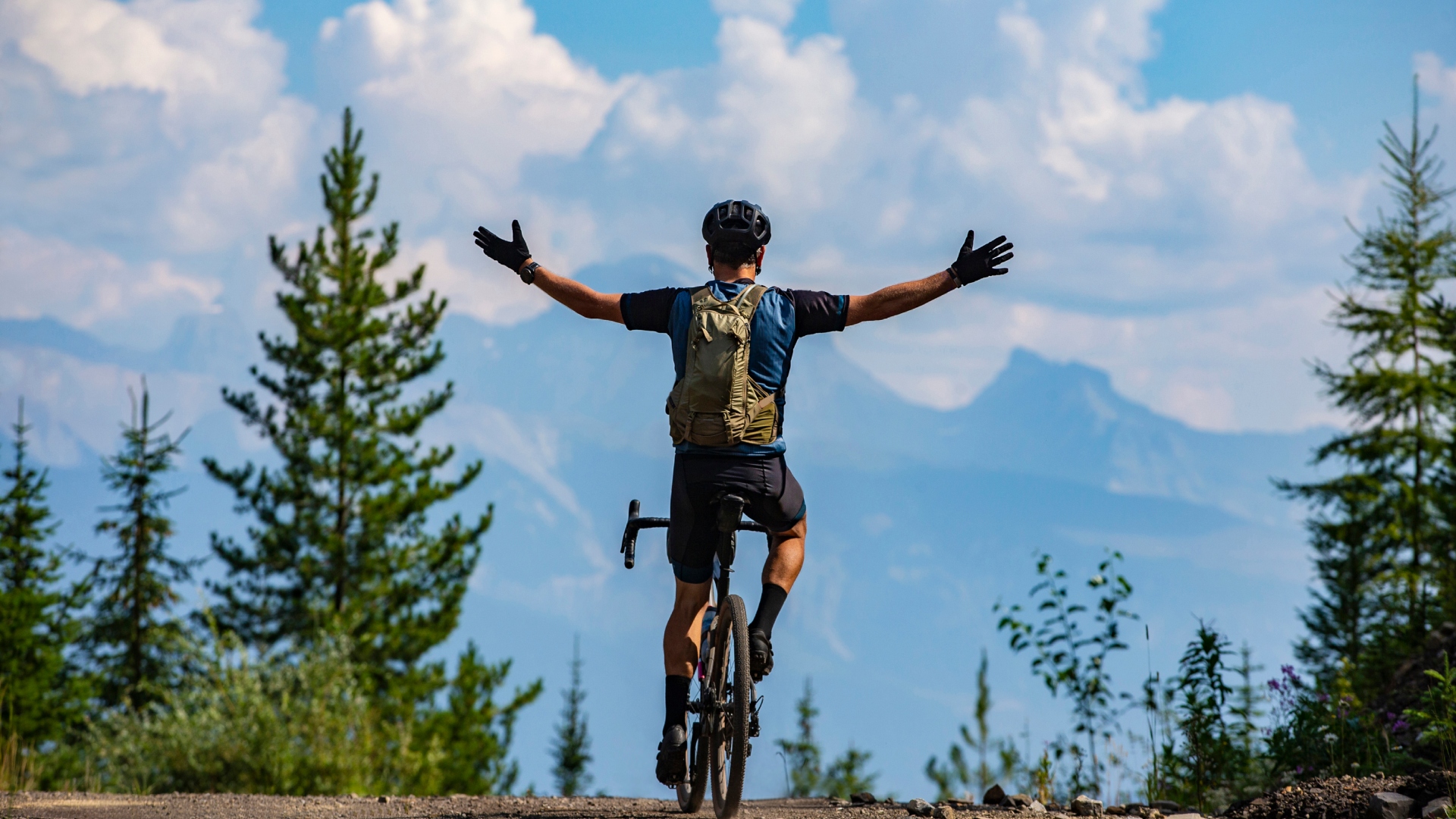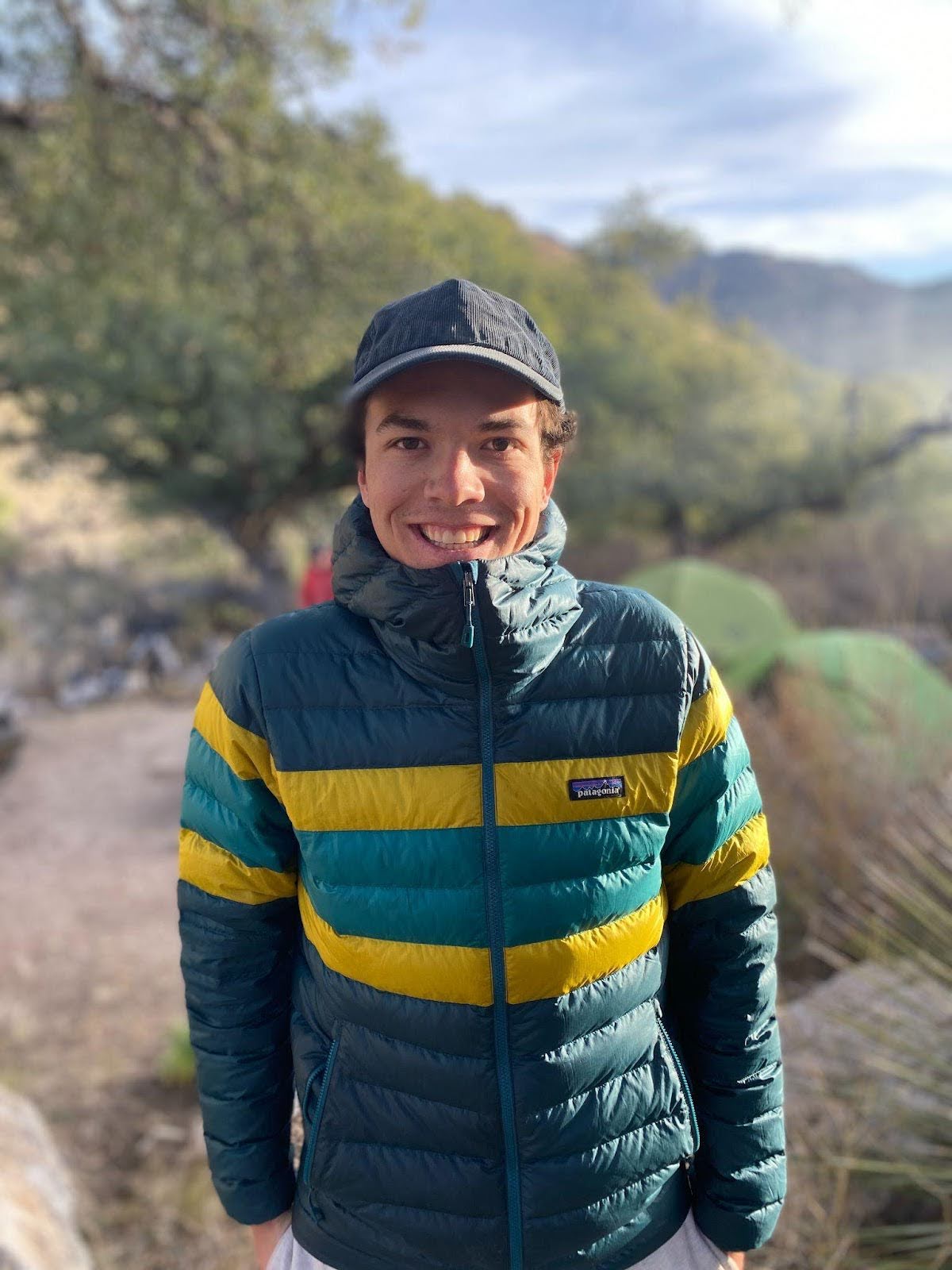The battle for public lands is a reminder: cyclists can’t afford to stay on the sidelines of politics
Cycling is a political act. Without a strong, unified constituency, we stand to lose big


The latest race content, interviews, features, reviews and expert buying guides, direct to your inbox!
You are now subscribed
Your newsletter sign-up was successful
There’s a particular beauty to cycling and the way it opens up the world to anyone willing to pay attention. Faster than walking, but slow enough to notice every detail of our surroundings. And unlike driving, there’s nothing between you and the landscape. No doors, no windows. Just wind, sound and the immersion in the place you’re moving through.
Nowhere is that perspective clearer than in protected public lands. On those roads, many of them dirt, the secrets of where we live and where we visit come to us as cyclists in ways others aren’t privileged to experience.
When I set out to write this piece on the importance of protecting public lands in the American West, I first wanted to count the number of National Forests I have ridden in throughout my travels in the western half of the United States. I stopped counting at 30, and that most likely doesn’t cover it.
It's in the American West where one can find the biggest mountain passes, the gnarliest rock outcroppings, the tallest trees and the cleanest rivers. It's home to the very DNA of the land. Without these places, the United States of America would be without the iconography that has shaped the world's perception of our nation for over a hundred years.
When news came that the “Big Beautiful Bill” would include a provision authored by Republican Sen. Mike Lee of Utah that would authorise the sale of millions of acres of National Forest and Bureau of Land Management (BLM) lands, every alarm bell within me went off. Once something is for sale, it immediately becomes a commodity. I’m certainly not alone is seeing public lands not as commodities, but as priceless, national treasures.
Cyclists make up only a tiny percentage of protected public land users. The paved roads that crisscross the country serve as primary routes for most riders, often located far from these wild, protected spaces. Yet it is within those very lands that some of the most unforgettable cycling experiences happen. Gravel races, gran fondos, epic trail rides all depend on the pricelessness of these untamed landscapes as their backdrop.
And I fear the cycling community has been too quiet about what’s at stake when a price tag is put on these lands. This threat runs far deeper than the loss of a few races or trail systems. Putting these places up for sale sets a dangerous precedent: that what belongs to all of us can be carved up and handed over to private interests. If this becomes the new normal, it will undermine the very foundations every cyclist relies on: our access, our safety, and the freedom to explore shared spaces.
The latest race content, interviews, features, reviews and expert buying guides, direct to your inbox!
Fortunately, the court of public opinion can still tilt the legislative scales. The wave of public outcry from across the outdoor recreation spectrum, and from prominent figures in both political parties, has done enough to strip the required sale of public lands from the “Big Beautiful Bill" — for now.
Regardless of how this current attempt to curtail public lands plays out, it won’t be the last effort to commodify the places we hold dear. Sen. Lee said as much in his statement announcing his change of course. And cyclists must be at the forefront of defending these lands and the broader cycling ecosystem, because the next wave of political attacks could hit even closer to home—threatening vital infrastructure projects that ensure safe passage to and from these natural spaces, or the laws designed to protect vulnerable road users.
All of this stems from a drive to commodify and individualise the world at the expense of conservation and the common good. That should be alarming no matter where you fall on the political spectrum. This isn’t partisan. For me, it’s the natural outcome of my politics as a cyclist.
Strip away my education and my other beliefs, and at my core, you will find someone who simply loves riding their bike. And because of that, I feel the massive stakes of what this kind of legislation could mean to me and my two-wheeled hobby. I want beautiful natural places to ride in, because riding in beautiful natural places makes me feel like a human. I want bike lanes because I value biking as a form of transportation, and I would like make it to wherever I need to go safely. I value laws that protect vulnerable road users because there need to be consequences if I get hared when choosing to travel by bike.
Regardless of your political affiliations, if you’ve read this far, you probably feel the same.
If you breathed a sigh of relief when the public land sale provision was stripped from the Big Beautiful Bill, know this: these threats will return. Again and again.
And whether or not you see yourself as political, the reality remains: cycling is a political act that demands a strong, unified constituency. Without it, how can we possibly win the consideration, protection, and respect we deserve?

Logan Jones-Wilkins is a writer and reporter based out of the southwest of the United States. As a writer, he has covered cycling extensively for the past year and has extensive experience as a racer in gravel and road. He has a Bachelor of Arts from the University of Richmond and enjoys all kinds of sports, ranging from the extreme to the endemic. Nevertheless, cycling was his first love and remains the main topic bouncing around his mind at any moment.
You must confirm your public display name before commenting
Please logout and then login again, you will then be prompted to enter your display name.